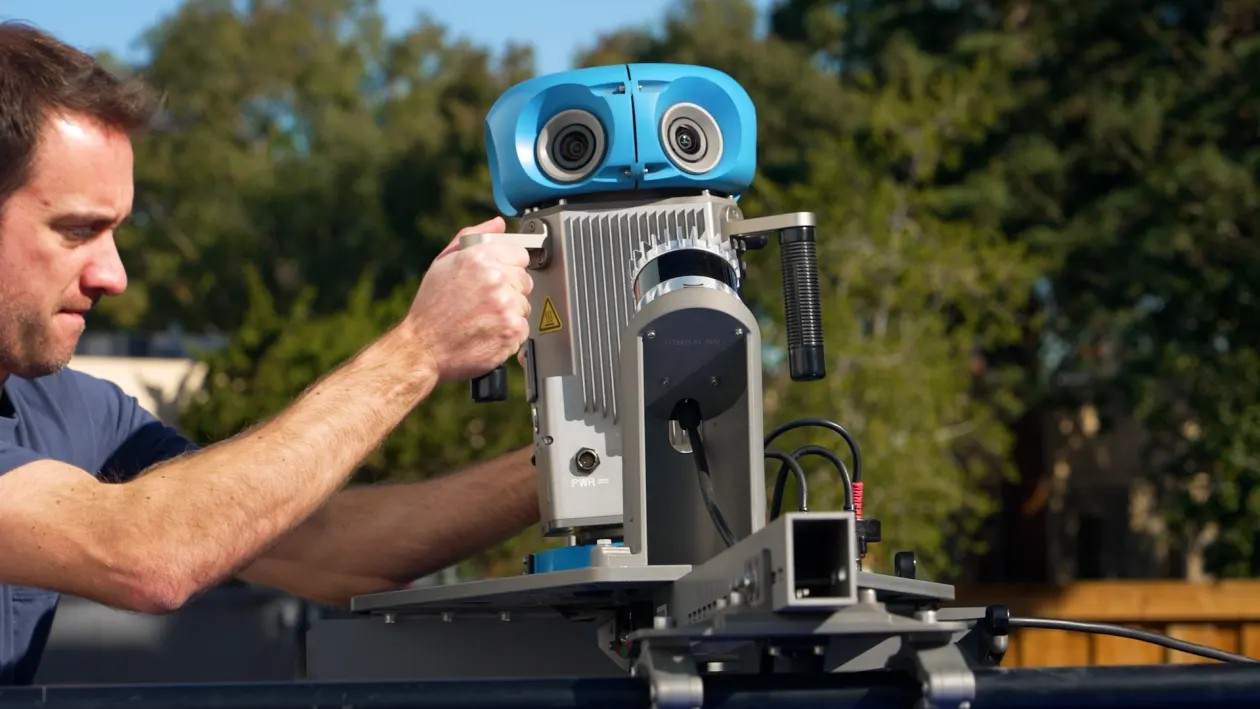Two decades ago, Google co-founder Larry Page came up with an idea that would forever change the way people travel.
“Larry drove along a few streets with a video camera and then handed it to someone and said, ‘Hey, what can you do with this?’” Maria Biggs, Technical Program Manager at Google Street View, recalled.
In his latest Street View camera-equipped vehicle, Biggs takes a ride near Google's Silicon Valley headquarters. Unveiled in 2022, this is the first camera model that can be mounted on any vehicle, rather than being integrated into the vehicle itself.
According to Biggs, they will be going to Hawaii with the new camera system because they don't need to transport an entire vehicle. They just need to pack the cameras in crates, ship them to the island, and rent a vehicle to use them. The new technology allows Google to update data at several locations for the first time in 10 years.

With over 2 billion monthly users, Google Maps is the world's most popular map app. This February, the app will turn 20 years old. Google is working to maintain its leading position with the help of new cameras and generative AI.
Camera Street View is a crucial part of Google's map data collection, but the company also relies on satellite and aerial imagery, as well as information from over 1,000 third-party sources such as local governments and users.
Google's massive data collection system allows it to provide maps in more than 250 countries and territories.
In October 2024, Google integrated the Gemini AI chatbot into Maps. Gemini helps find places that meet specific criteria, such as pet-friendly bars and those with outdoor seating.
It also summarizes thousands of reviews, provides real-time road incident reports, and updates on weather conditions.
For public transport, Maps displays delay reports, alternative routes, details such as subway entrances and exits, suggested parking spots, walking directions, etc.
Chris Phillips, Vice President and head of Google Geo, the division that operates Maps, expressed his hope that the product will help people travel more safely and confidently.
To ensure privacy, identifiable information such as faces and driver's licenses is blurred on Google Maps. Users can request that an area be blurred on Street View to prevent malicious actors from analyzing their property.
They can also turn off location history and delete visited locations. In December 2024, Google began storing location history on the device instead of in the cloud.
Want to know how to make money from Google Maps?
How much Google spends and earns from Maps remains a mystery. Parent company Alphabet doesn't disclose Maps' earnings in its reports, lumping it together with Search and YouTube.
In 2019, Morgan Stanley predicted that Maps would generate $11 billion in revenue in 2023, up from $2.95 billion in 2019.
Maps' revenue relies on a model that Google specializes in: advertising.
According to Phillips, they always focus on ensuring Maps provides the most accurate answers when users search for something. Sellers have the opportunity to purchase advertising to have their businesses appear on the list.
Google also makes money by selling software interfaces with detailed data to solar energy companies looking for new customers. The company has highly accurate images, measurements, heights, and roof shading data for approximately 480 million buildings in more than 40 countries.
Google also sells access to its Maps platform to companies like Wayfair and Dominos. Developers use it to create over 10 million websites and applications for purposes such as food delivery, ride sharing, and real estate.
For example, in 2019, Uber revealed that it had paid Google $58 million for mapping technology over the previous three years.
The Android Automotive system with its built-in maps is also a money-maker. It ranks behind the infotainment systems in many vehicles from Polestar, Volvo, Honda, GM, and Ford.
As self-driving taxis become more common, accurate maps are crucial, presenting a huge opportunity for Google. Alphabet's Waymo dominated the US self-driving taxi market in 2024. Passengers in Phoenix can book a ride directly from Google Maps.
(According to CNBC)
Source: https://vietnamnet.vn/google-maps-buoc-sang-tuoi-20-2364881.html







![[Photo] General Secretary To Lam works and extends New Year greetings to the Party Committee, government and people of Dak Lak province.](https://vphoto.vietnam.vn/thumb/1200x675/vietnam/resource/IMAGE/2026/02/11/1770808701306_ndo_tl_img-4099-5201-jpg.webp)


































































































Comment (0)